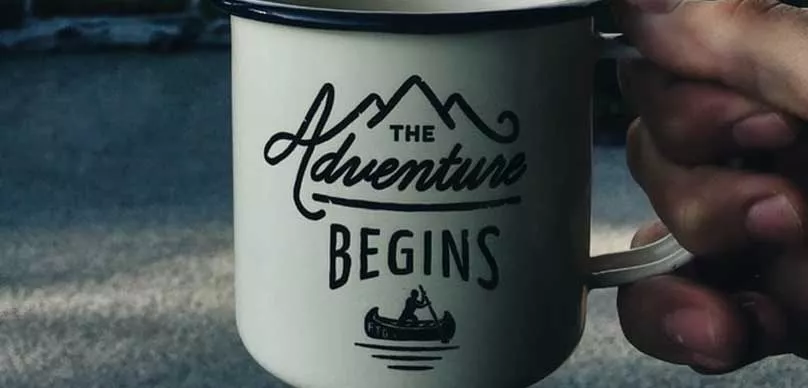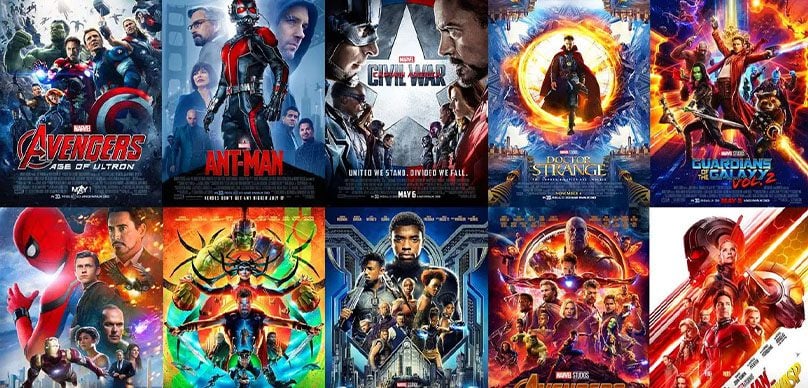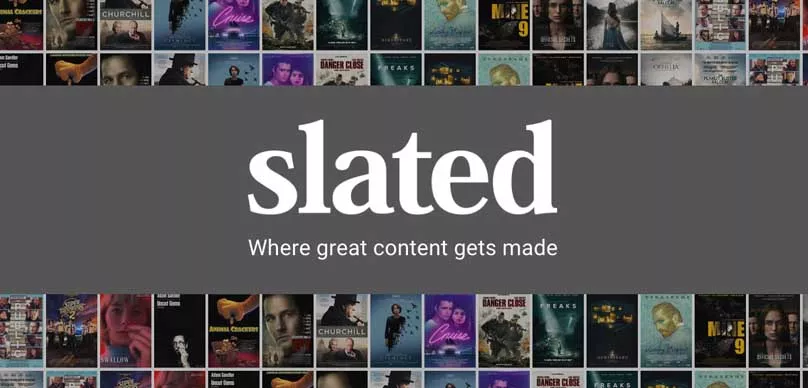Fear, the one thing that stops most indie filmmakers from moving forward and following their dreams. Fear of shooting their first feature film, writing that screenplay, making that short film or just taking the first few steps towards their goals.
Fear has been a strange bedfellow of mine throughout my career. It has slowed and outright stopped my progress. It has taken many years of failures to finally realize I have nothing to fear. As they say:
“We stopped checking for monsters under the bed when we realized they were inside of us.” – Anonymous
Breaking through the Fear
I finally decided to “feel the fear and do it anyway“. Directing a full-blown feature film always seemed like this huge, monstrous mountain I had to climb. It was like going to hike Mt. Everest when I never even climb a mountain before.
Then I figured out that a feature film didn’t have to be a “huge, monstrous mountain” and that many filmmakers started off shooting smaller films before climbing Mt. Everest. Chris Nolan shot The Following before he made Memento and then The Dark Knight Trilogy.
In that spirit, I ventured off into uncharted territory with the making of my first feature film This is Meg.
In this podcast, I discuss what fear does to artists, writers and filmmakers and how you can break-through and make their first feature film. Enjoy.
Right-click here to download the MP3
Alex Ferrari 0:00
So guys, I've been thinking a lot about now distribution and festivals. And it's been a minute since I've been submitting my films to film festivals. I have been in a ton of festivals over my career, but I have never been with a feature film that I've directed at least. And I haven't done it in recent years. So I started reaching out to certain people and trying to, you know, figure out that the landscape a little bit more and you know, just get as informed as I can. And I don't do this very often. But there's a past guest that was on the show Sebastian toward his he was in Episode 75. What does it really take to make it in Hollywood? And it was a great episode, definitely check it out in the show notes. Sebastian is from circus Road Films. And he's a producer's rep. And I I've talked to him a lot. And I've actually done a lot of research and spoken to a lot of filmmakers who've worked with him. And I've seen his results. And I like I said before, I don't do this very often. But if you guys have a feature film out there, that you do want to get into film festivals, you want to try to get distribution, you know you it wouldn't hurt you to just at least talk to Sebastian, and see if there's anything he can do for you. Maybe he can guide you in the right way or not. And you know, I would definitely reach out to him, I'm going to put a link to his his direct email in the show notes. The show notes for this show will be indie film, hustle comm forward slash zero 95. And again, guys, just just talk to him. If you have a feature film, it wouldn't hurt to just at least get a consultation or just talk with him a little bit and see if if you have a viable product for the marketplace. So I hope that helps you guys out. Because believe me, I'm now going on the same journey that you guys are on trying to get this as MC sold, get it into festivals, get distribution, or possibly do self distribution, it all depends. I'm going to do a whole episode on our distribution plan coming up in the months to come. But and also, by the way, an update on this as Meg because I know I've been getting a lot of messages, emails and tweets about where I am on the process of this as Meg and we are at a locked cut. Believe it or not, we've locked the cut. It is a very funny movie, I think. And we've had multiple test screenings. And we are now in the audio process, getting our audio done and getting our score created for the film and then I'm going to be color grading during that process to get it ready for our Sundance submission because as you know, it is the law. We all have to submit to Sundance no matter what no I'm joking. For anybody victim series, it is not the law. But for God's sakes, more than likely it's a lottery ticket. You're going to have to submit, so just might as well just get it over with, and submit. So we're throwing our hat in the ring and see what happens. But anyway, so that's what we are. And this is Meg, thank you guys so much. I'm going to be putting more updates out as we continue going through that process. And I've learned so much about, about everything, making this movie. And I'm going to share as much of that as I can with you guys on the podcast, and to the members of the indie film Syndicate, which will get a detailed breakdown of how we made this crazy little film so quickly. So today's topic, guys is one of the greatest little Gremlins, goblins demons that us artists have to deal with, and specifically as filmmakers, as well. And that is fear, and fear and what it represents to us and how fear stops us from moving forward as artists. And as filmmakers, and I'm going to tell you something fear has been a, a horrible concubine of mine. For many years, she has been, she has been with me, since the very beginning, she still with me today. And I think every artist, no matter how big they might get, fear is always there. But it's about how you handle your fear, how you deal with your fear and what it does for you. Because fear can be the biggest ally you have in the creative process in moving your career forward. As a filmmaker, as a screenwriter, as an artist, fear is not to be feared, if you will. I was I was definitely afraid of making a feature film for many years, because I wanted to make sure everything was great. I wanted to make sure that I had the right camera that I had the right cast, that I had the right film, and project and script that I could to get noticed to get the big boys the gods on Mount Hollywood to take notice of me or on the on the gods of Mount Sundance, or Toronto or con to take notice of my work. And that fear paralyzed me for many years. And I would you know, and I think something that we do, as filmmakers we kind of, we lie to ourselves constantly, like oh, well, you know, I'm not gonna be able to do this, because, you know, I don't I didn't have that guy, I don't have this part, or I don't have that part. And a lot of times, it's just excuse that all those excuses are just hiding your fear of actually creating something, putting yourself out there and doing something because failure, which is one of the biggest fears a lot of us have, the fear of failure is something that in all honesty should be embraced. You cannot grow as a filmmaker or as an artist. Unless you fail, you learn so much more from your failures than you ever will from your successes. And the only way you can get to those successes is by failing and failing a lot and failing often. So I you know, in recent years started to figure out that failing is okay. It's part of the process. All of us have failed. Every major, you know, idol of yours that you look up to whether it's Hitchcock, Kurosawa, Spielberg, Fincher, Nolan Tarantino, all of them have failed and failed multiple times. And many times and big ways as well, you know, Steven Spielberg, after jaws and close encounters, and right before he did Raiders of the Lost Ark, he did another little movie called 1941, which was a colossal failure on all fronts, from how it was written to how it was directed to everything. And it's one of his glowing failures of his in the heat of when Spielberg was Spielberg. I mean, he was just awful close encounters he was right before. It was either right before or right after Raiders of the Lost Ark. I mean, he was the biggest filmmaker of its of his time. And he created a colossal failure. And then how you bounce back from those failures, is how you're going to continue to move forward in your filmmaking career. It's how you deal with those failures. I have failed many times in my life. You know, when I first came out, as a director, you know, I wanted to be a commercial director, and I sent my reel out everywhere. And I had my little commercial reel that I've spent probably about $50,000 to get made at the time because there was no digital revolution at the time. So it was much more expensive shot on 35 and so on. And I and I sent my reel out to 400 different production companies trying to get represented and trying to get work as a director as a commercial director, and with connections in the business and everything. And the first round out. I didn't get anything, I got one, excuse me, I got one that led to jobs later on. But I was I considered that a big failure. And after that I kind of crawled up into my, into my turtles, turtle shell, and then took me a little while to come back out. And then that that duration of coming in and out of your fear shell will lessen as time goes on, it's like a muscle, you've got to fail, deal with it and move on and and the more you fail, the better you get at it. I'm just going to use an analogy here, guys. And I know it's a sports analogy, but I'm going to use it anyway. Ted Williams, who is arguably one of the best hitters in baseball history, had a batting average of 3.3444. All right out of 1000, that means that he failed, over almost 70% of the time a little bit. So 64% 66% of the time, excuse me, my math is horrible. My sick, he failed 66% of the times he went up to the bat. So the majority of the times he tried to do what he was going to do. And he's considered one of the best in history, he failed. And every time you failed, going up to the plate, guess what, he learned something. And he learned on it. So being a baseball player, you've got to you got to swing so so many times. And as you swing more and more and more, you learn more and more and more in your batting average, gets more, it gets better, and you get more home runs, and so on. So as a filmmaker, you have to do the same thing as an artist, you have to do the same thing. As a screenwriter, you have to do the same thing. You just got to keep going and going and doing and producing and producing. Because the more times you get it out there, the more times you fail, you learn and you grow. So as I've studied so many filmmakers over the course of my career, and you know, all the greats, some of them have had massive failures, and some of them just bounce right back and they're already in another project by the time they're failures going, they're already moving on to something else. They just kind of compartmentalize it and just go and just don't worry about it. And they just keep moving forward. But that's a skill that takes time to build, some people are born with it. People like myself has taken time to develop that skill, to the point where when I fail, I just keep moving forward, when I fail, I keep moving forward, but you have to fail, you have to learn from those failures. If not, you're not going to grow as an artist. So you know, as they say, feel the fear and do it anyway. And so with what I was saying before is you know, I've had these fears of like, oh man, people always ask me, Well, Alex, why aren't you doing a feature film? Why haven't you made a feature film yet? You know, you've done all this other stuff? Why haven't you made a feature film? And I'm like, Oh, well, you know, I need this, I need that. And all the scripts not there. And I you know, I want to make this or that. And it just kept I just kept throwing Excuses, excuses, to finally, in all honesty, through indie film, hustle, you know, talking to you guys and interacting with the tribe, I began to realize that there's nothing to be afraid of, you know, you just got to go out and do it. And if you go out and do it, you're I think at the 1% of people who actually Imagine all the people you know, who talk about making a movie. And then out of those people, how many have actually done it. And then out of out of those people, how many have done it more than once. So I'm betting that that's probably a fraction of a fraction of 1%, who actually done it more than once, who done it at all, let alone more than once and then let alone have created a career out of it. If you know anybody who's even done that, personally. So, you know, just going out and doing it is going to be you're going to be ahead of the game from so many different people in the world. But at the end of the day, again, it's always an I know that sounds cliche, but it's about the race with you, you're not in race with anybody else, but you just kind of go out and do it, guys. So that's exactly the mentality I took when I created this as mag, you know, and I put it all together I did it. You know, we we came up with the idea. I mean, I came up with the idea to make this movie at the end of April. And now we're here at the end of August, and I have a final cut. That's insane. It's absolutely remarkably insane what we've done, me and Julie look at each other, almost on a daily basis when we're when we're working on the movie and just go, did we just make a movie? And it doesn't work? Really like how is this? How is it playing? You know? So I'm not saying that everyone's gonna be able to do what we just did. I mean, I have a lot of experience underneath my belt. I had a lot of connections. I pulled a lot of favors to do what I did, but it was it was doable within my circumstances. But again, I wasn't afraid. I've actually talked to other directors, friends of mine who like I can't believe you've done that man. I I'm scared to death of doing something like that. You just kind of freefloat it. And I'm like yeah, I was kind of like playing jazz. I felt like the making of this as Meg was like playing jazz. You just got together with a bunch of amazing people. And we kind of just rift and it was a very structured riff. Don't get me wrong, we had a very structured story and everything but within the within the confines of that structure within the confines of that script we just played. And I hope you'll see that on the screen when you watch the film, because we had so much fun. And I've never once in my entire life have been so stress free on any production, including commercials or music video, he was the most relaxed, non stressful, just chilled, had a great time, had a wonderful attitude, everybody, and everybody involved was just there to have fun and play and, and it was great. And it was all because I finally broke through the fear. And just said, Screw it, I'm gonna make one, I'm gonna go make a movie. And if it comes out great and great, if it comes out horrible fine, I learned something. And I have four other ones that I'm planning to do in the next year, you know, hopefully next year, I'm gonna have another one I least another feature made. And probably prepping the second one because I already have I already have that timed out. The rest of this year is going to be focused on just going through this process with this as mag, and building up indie film, hustle, building up the Syndicate, and building the best community I can with indie film hustle in the indie film syndicate. And that's my goal for the rest of this year. While I'm learning and growing with this, as Megan seeing where this is, Meg will go and see how that whole process goes. But again, it all started with me just feeling the fear and doing it anyway.
You know, I was, you know, I, I was the DP on this movie. I was a cinematographer on a feature film. I've never seen a moto. I never cinematographers. I've never, I've never shot an entire feature film. I didn't know if I could do it. You know, I just went out and did it. And it's like, and people were like, You're nuts. I'm like, Yeah, I know. But I'm just gonna do it anyway. I'm having fun. And I and I made mistakes. And I learned from those mistakes. And I moved on. And at the end of the day, I think the movie looks good. And I've had a couple of cinematographer, friends of mine, watch the movie. And they've said, Alex, it looks great. It looks fine. Don't get me wrong, if you had a pro cinematographer, it will look a lot better. But for what we were trying to do, which was kind of an experiment, it worked. And it was all because I just gave up the fear. I just gave it up. I just said, You know what I'm gonna, I'm gonna be afraid and just move forward with it. Because as I've been saying, it is your responsibility as an artist to get your art out into the world. Because you have no idea how many people can be affected by one thing that you do as an artist, it can change lives. That is the power of art. That is the power of what you do as a filmmaker, you can change people's minds. You can change people's emotions, you can entertain people and get them out of a really bad day. Because of what you do. It's very important work, guys. And don't be don't be little it or think it's something Oh, I'm just gonna make a funny movie or something like that. You've no idea. You know, look, there was a movie I did. I remember, I'll never forget this. I was having a horrible day in high school ones. And I was working at the video store at the time. And I went, and I was like I had like, I think I've just broken up with my girlfriend or some stupid thing like that high schools up. But I remember I was really down in the dumps. It was horrible. Then I rented this little movie called Bill and Ted's Excellent Adventure. Which by the way, if you guys have not seen Bill and Ted's Excellent Adventure, if you want to see Keanu Reeves, in his just Qian Rubyist. You've got a watch Bill and Ted's Excellent Adventure. The first one I actually enjoyed the second one too, but I saw that movie, I could not stop laughing. And it brought my whole day up. And I never forgot that day. Because the power of that movie, as silly as it might have been to the filmmakers who were making it or whatever. He brought me joy that night. And I always go back to that movie as a place of solace when I was when I was sad or something like that, because it would always make me laugh. So you never know the power of what you do as an artist. And you've got to feel that fear. And you've got to do it anyway. So guys, right now I'm going to challenge everybody out there. I'm going to challenge all the filmmakers, all the tribe members who are out there listening to this podcast, if you've got an idea for a feature film, right now, if that's your goal, if your goal is to make a short film, if your goal is to make a web series, if your goal is to make a television series, whatever, that's whatever that scenario is for you. If your goal is to write that screenplay you've been wanting to write and get it out there into the world. My my challenge to you guys is to feel that fear and do it anyway. Be brave enough to put yourself out there. Because trust me, you will thank me for it. You might get slapped. You might get haters. You might just go oh, this is crap. But I guarantee when you're done with that process, it might be painful, it might not be. But if it is painful, you'll learn from it. And you'll grow. And don't let it stop you, that hopefully will keep you going. But you've got to do it and do it smartly. Obviously, don't just grab your iPhone and go make a feature film, don't be an idiot.
Think about it, be structured, be be intelligent about how you do it. But get that process going. Whatever that is, whatever that reality is for you. Whether it is getting an iPhone, but do it properly, get the proper software on that iPhone, get that that lens attachment, the same ones that they did with tangerine, from Sundance, learn from them, figure it out, get the lights you need, and tell the story that you're going to tell. But go do it. Don't feel Don't be afraid, guys. I'm telling you, I'm on the on the farm on the frontlines here with with my first movie. And I'm telling you, I'm sending back information I'm sending back word, that it's okay. That you can go out and make your movie, you can go out and make your short you can go out and write that screenplay that you've been dying to make work. You can do it guys. You can do it. I'm telling you, you just have to educate yourself as much as you can, and get out. And you know what, by doing it, you're educating yourself. Robert Rodriguez made 30 short films that no one has ever seen before he made his student short film that was bedhead that took him to El Mariachi. And he said many times in interviews and in DVD commentaries, he said that he wanted to get those 30 films out. Because it just he shaved off all the cobwebs. He shaved out all the things that he didn't know, he did them. And you know what, he didn't put them all out there for everybody to see. They were practice. So if you don't feel comfortable enough to do a feature film, and you want to do and you've never even made a short call, make 10 shorts. You know, I met a wonderful tribe member at the holly shorts Festival, the holly shorts event that I did. And he told me that he did. He's doing a 10 week challenge. He's doing a short film a week for 10 weeks. And then while he's doing that he's saving money to make his first $1,000 feature film. And I honestly don't even know how old he was. But he was probably probably in his early 20s, if not his late teens very young guy. And my God, he's so much farther along than I was at that time. He's braver than I was at his age. So much braver. So that's what you've got to do, guys. Just go out there and do it. And don't let fear stop you. The word fear has two meanings guys. Fear stands for Forget everything and run or face everything and rise. The choice is truly yours. Too many filmmakers are living or not living their dreams. And they're living their fears. Instead, everything that you want, all your goals are on the other side of fear, guys. Alright. And I'll end today's episode with another quote from the amazing Bruce Lee. fear comes from uncertainty. We can eliminate the fear within us when we know ourselves better. Very true words from a master of not only martial arts, but of life in many, many ways. I want you guys message me, email me, tweet me, let me know how it's going with you guys. Post stuff in the indie film hustle group at Indie film, hustle, calm forward slash Facebook. And you can get to our Facebook group there post information about what's going on with you there. And we want to share it with all the tribe. And so please let him let me know what you guys are up to. And I want I want nothing but success for you guys, man. Seriously, I really, really want you guys to succeed in your endeavors. And I hope in a small way that this podcast episode has helped you moved you a little bit further along that path. Alright, so guys, now, I know I've been away a lot because of the the the editing of posts and the post production I've been doing with mag. But I'm going to be starting to come back in a little bit more of a full force scenario, I'm going to be adding a ton of content to the indie film Syndicate, and adding more courses, stuff that I've had in the hard drives for a while I just haven't had a chance to get them up. They're up late uploaded. And I have a lot of new cool stuff coming to the indie film syndicate. Please, if you guys haven't checked it out, go to indie film syndicate.com and I will be doing a bunch of cool stuff coming up in the next month or so. And definitely check it out and see what you guys think it's a great community. It's a growing community. And it's a really intimate community you know, everybody really is helping each other a lot in the community and it's actually really, really wonderful. So I'm so, so glad to be a part of it and and hopefully helping more and more of you guys out. So keep that hustle going. keep that dream alive and I'll talk to you soon.
Sign up to receive email updates
Enter your name and email address below and I'll send you periodic updates about the podcast.
YOUTUBE VIDEO
LINKS
- This is Meg
- IFH 075: What Does It Really Take to Make in Hollywood with Sebastian Twardosz
- Sebastian Twardosz – Email
- Bill and Ted’s Excellent Adventure
- Steven Spielberg’s 1941
- Robert Rodriguez Mexico Trilogy
- Rebel without a Crew: Or How a 23-Year-Old Filmmaker With $7,000 Became a Hollywood Player
SPONSORS
- Bulletproof Script Coverage – Get Your Screenplay Read by Hollywood Professionals
- Audible – Get a Free Filmmaking or Screenwriting Audiobook
- Rev.com – $1.25 Closed Captions for Indie Filmmakers – Rev ($10 Off Your First Order)



















